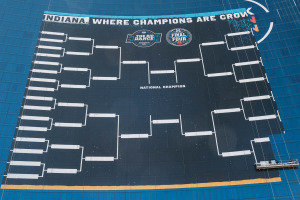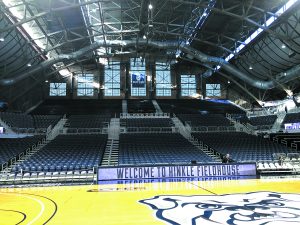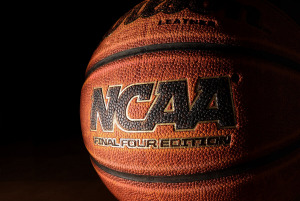
Gargantuan graphics put Indy’s Sport Graphics in the spotlight
Indianapolis-based Sport Graphics is best known for its record-setting NCAA Final Four creations and the massive banners it creates to festoon the exteriors and interiors of everything from the Indianapolis Motor Speedway to Lucas Oil Stadium.












